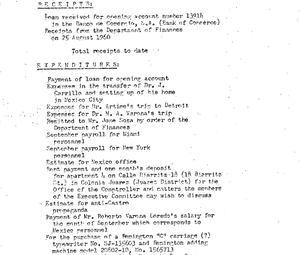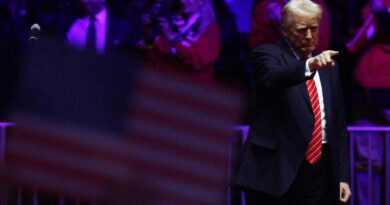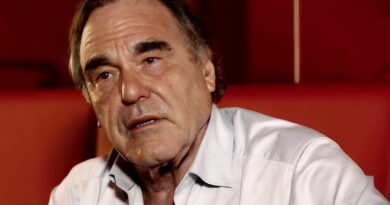Government releases classified JFK assassination documents – as it happened
We’re wrapping up this live blog now.
Read our latest news story here:
And our at-a-glance guide to the key revelations so far is here:
- The FBI were trying to track Lee Harvey Oswald before the assassination, according to memos by New Orleans division of the bureau. An agent there wrote that Oswald was of interest according to “Cuban sources”, and that he had forwarded the information to Dallas authorities.
- The FBI warned Dallas police of a death threat to Lee Harvey Oswald, according to a memo by director J Edgar Hoover, but the police failed to protect him. “Last night we received a call in our Dallas office from a man talking in a calm voice and saying he was a member of a committee organized to kill Oswald.”
- Hoover started to fear conspiracy theorizing. “The thing I am concerned about,” Hoover said, “is having something issued so that we can convince the public that Oswald is the real assassin.”
- Soviet leaders considered Oswald a “neurotic maniac who was disloyal to his own country and everything else”. They, too, feared a conspiracy had killed Kennedy, perhaps organized by a rightwing coup or Lyndon Johnson. They also feared that a reckless general would launch a missile and start war in the aftermath of Kennedy’s death.
- Fidel Castro told American lawmakers that Cuba was not involved in the plot, when House investigators visited the island in 1978. In 1963, however, the Cuban ambassador tot the US reacted with “happy delight” to the murder, according to a CIA memo.
- The documents include a lengthy report on CIA assassination plots and programs, and scores of pages of receipts and bookkeeping, amounting to hundreds of thousands of dollars in covert programs. Many were directed at Cuba, others in the Dominican Republic, Congo, and north and south Vietnam.
- President Donald Trump blocked the release of an unknown number of documents, saying he had “no choice” but to bow to national security concerns of the FBI and CIA. He also ordered them to review their still secret documents over the next 180 days, setting a new deadline for releases, on 26 April 2018.
We’d like your help too. The JFK files will be published online here. If you’re reading through the documents and you spot an interesting fact or snippet you think we’ve missed, it would be great if you could let us know. We’ve set up a form here for contributions.
In 1978, several members of the House committee reinvestigating the assassination traveled to Cuba, talking with officials there about Lee Harvey Oswald’s attempt to get a visa and Jack ruby’s visits to the island in 1959.
They also discussed “the alleged pro-Castro involvement in the assassination”. Right before departure, they met Fidel Castro.

The Cuban ambassador and his staff reacted to Kennedy’s murder with “happy delight”, according to a CIA memo dated to just days after the assassination.
“After further info was received indicating that Oswald had connections with Fair Play for Cuba committee there was some apprehension concerning possible US reaction,” the memo continues. After some indecision and reluctance, the ambassador eventually attended a requiem mass for Kennedy, “as official rep. of his govt.”

My colleague Ed Pilkington has found a memo from a CIA division chief regarding Lee Harvey Oswald’s contact with the Soviet Embassy in Mexico City, in September 1963.
It suggests that conspiratorial ideas were creeping into senior levels of the CIA only a day after Kennedy was assassinated in Dallas.
According to an intercepted phone call in Mexico City, Lee Oswald was at the Soviet embassy there on 28 September 1963 and spoke with the consul, Valeriy Vladimirovich Kostikov. This was learned when Oswald called the Soviet embassy on 1 October, identifying himself by name and speaking broken Russian, stating the above and asking the guard who answered the phone whether there was “anytihng new concerning the telegram to Washington.” The guard chekced and told Oswald that a request had been sent, but nothing had as yet been received.
The FBI liaison officer, Mr Pappich, told me on 23 November that the Bureau has reason to believe that Oswald’s visit was to get Soviet support for a US passport or visa matter.
The CIA chief the calls Kostikov “an identified KGB officer” and a member of Department 13, a unit “responsible for sabotage and assassination”. He cites a source, a German national woman who lives in Oklahoma, met with Kostkikov and another Department 13 officer, Oleg Brykin. “Of course it is not usual for a KGB agent on a sensitive mission to have such overt contact with a Soviet embassy,” the CIA chief continues.

The CIA chief goes on to cite a Soviet admiral at length about the precautions and disguises that intelligence officers should use, suggesting that Kostikov’s presence was extremely unusual.

He adds, as a brief coda, that that same Soviet admiral says such blatant meetings by intelligence officers could also be simple carelessness. The CIA passed the information along to a FBI liaison.
In a memo dated 26 November 1963, the FBI scrambled to collect everything it could about Jack Rubenstein, also known as Sparky Rubenstein, then as Jack Ruby, in the hours after he fatally shot Lee Harvey Oswald.
According to an informant, Ruby had a “good in” with the Dallas police, “which would be borne out from his observation that Ruby had a B-girl operation where drinks were pushed heavily with no interference from the police department”.

A source described ruby as “an extremely stubborn person and a publicity hound”.
Due to his “emotional instability”, the source “did not think it unusual when Ruby was reportedly more upset over the death of the president than the death of his own father”. He said he was surprised Ruby had “actually killed Oswald” rather than simply wounding the captive “in the leg with a .22 caliber weapon in order to get publicity”.
The source did not know whether Ruby had any “specific conections” in Chicago or with “organized criminal, hoodlum or subversive element. He did not know Oswald and knew of no connection between the two”.
h/t Jacob Richardson for the memo
Reader Kieran Morris, in Clapham, London, has found several cryptic remarks by a Soviet naval attache and a colleague in Washington DC in January 1964.
The FBI document is extremely difficult to read, and the FBI’s source appears to have only caught portions of the conversation.
One said he “considered it virtually impossible to have prevented the assassination, but considered the subsequent slaying of Oswald to be inexcusable”. He commented “we should never have let this happen.”

The FBI had warning of a potential death threat to Lee Harvey Oswald, according to a memo by director J Edgar Hoover, which reveals some of the bureaus reactions to the assassination.
“There is nothing further on the Oswald case except that he is dead,” Hoover begins:
Last night we received a call in our Dallas office from a man talking in a calm voice and saying he was a member of a committee organized to kill Oswald.
We at once notified the chief of police and he assured us Oswald would be given sufficient protection. This morning we called the chief of police again warning of the possibility of some effort against Oswald and again he assured us adequate protection would be given. However, this was not done.”
Hoover admitted that he does not have “firm” information about the man who shot Oswald dead, Jack Ruby, but nonetheless declared that his real name was Rubenstein, noted rumors of “underworld activity” suggested he had “the reputation of being a homosexual”.
The FBI sent an agent to Oswald’s deathbed in the hopes of a confession, to no success. Ruby denied making any phone call.
But then Hoover said that he and Nicholas Katzenbach, the deputy attorney general, already feared the spread of rumors and conspiracy theories. He noted that Oswald had visited Mexico City, called the Cuban embassy there, and sent a letter to the Soviet embassy about a visa.
“The thing I am concerned about, and so is Mr. Katzenbach, is having something issued so that we can convince the public that Oswald is the real assassin,” Hoover said.
h/t to reader Michael White, in New Jersey, for alerting us to the memo.

The FBI also was trying to monitor Oswald before the assassination, according to two memos.
The memos, dated from August through October 1963 – before the assassination – an agent with the FBI’s New Orleans division wrote that agents had lost track of Oswald and were looking for him, especially in the Dallas area.
h/t to reader Jess O’Neill, in Australia, for the find.


In a mirror of his American counterparts, one Soviet leader, in particular, was convinced that the KGB needed to get to the bottom of some kind of wide-ranging plot to destabilize the US.

In 1965, a source told the FBI that the KGB had “data purporting to indicate president Johnson was responsible for the assassination” – meaning at least some Soviets were convinced of a conspiracy years after Oswald’s death and the Warren Commission.
The FBI pressed a KGB defector, Yuri Nosenko, for more information about what relation Oswald may have had with the with the USSR. Nothing worth anything, Nonsenko told them.

In one particularly striking FBI document, from director J Edgar Hoover, the agency details everything it has learned about the Soviet reaction to the JFK’s assassination, and what its agents might have known about Lee Harvey Oswald.
The Soviets, like many Americans, were convinced of a conspiracy.

They were also frightened that a panicked, reactive military would lash out at the USSR, and desperately wanted to learn more about what kind of person Lyndon Johnson was.
Our source further stated that Soviet officials were fearful that without leadership, some irresponsible general in the United States might launch a missile at the Soviet Union. It was the further opinion of the Soviet officials that only maniacs would think that the “left” forces in the United States, as represented by the Communist Party, USA, would assassinate President Kennedy, especially in view of the abuse the Communist Party, USA, has taken from the “ultraleft” as a result of its support for the peaceful coexistence and the disarmament policies of the Kennedy administration.
They declared Lee Harvey Oswald a “neurotic maniac who was disloyal to his own country and everything else”. They disclaimed him entirely.

A huge swath of the CIA files are receipts and financial accounts for clandenstine projects: tens of thousands of dollars paid out for anti-communist activities, supplies, and weapons, especially to people in Latin America.


In a set of documents from the 1960s investigation, FBI staff are grilled by a Senate committee about their failure to stop Lee Harvey Oswald after his six-day trip to Mexico City in September 1963.
An FBI agent testified “Oswald wrote me in early 1962 to help expedite an exit visa for his wife. why in the world would he tell a plopper like that?”
A senator replies: “In any event, he told what the agent knew was lies, and what I am trying to get at is there was no analysis within the bureau of any of this. He even goes to Mexico City, contacts the Cuban consulate and the Soviet embassy, happens to be in contact – we don’t know if there is anything sinister about it – with an agent who is known to be KGB by the FBI and by the CIA, and suspected of being Department 13, which is their assassination and sabotage squad.
“In any event, he then returns to the United States, is never again interviewed by the FBI.”
*** This article has been archived for your research. The original version from The Guardian can be found here ***


